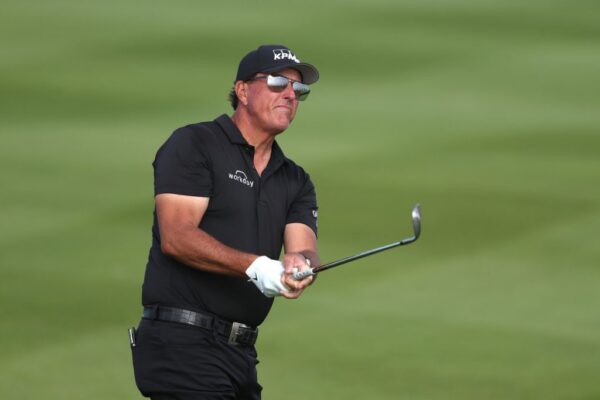On December 5, 2022, various European outlets rumored that Portuguese soccer player and global superstar Cristiano Ronaldo agreed to play for Saudi soccer club Al-Nassr. Though these reports have since been denied, Saudi’s willingness to spend almost 200 million euros per year on one player is apparent, yet not surprising. The Ronaldo reports is the most recent addition to a rapidly growing list of significant Saudi financial investment in sports.
From soccer to golf to e-sports and everything in between, let’s take a look at some of the more notable recent sporting investments by Saudi entities.
Soccer
In September 2021, the Saudi sovereign wealth fund, Private Investment Fund (PIF), finalized its $400+ million takeover of British Premier League (PL) club Newcastle United. Originally, a deal had been reached in 2020, but Premier League leadership scrapped it over concerns that the Saudi state would have had direct control over the club. Once it had “received legally binding assurances” from the Kingdom guaranteeing separation between the investment group and the government, the deal was finally allowed to pass. The concerns of PL leadership were echoed by many advocacy groups worldwide, who claimed that by allowing the PIF to purchase Newcastle United, the PL was complicit in Saudi ‘sportswashing;’ this word will be an occurring theme across many of the investments discussed here.
In addition to buying clubs themselves, PIF has also started investing large sums of money into sponsorship deals. A Financial Times report from October 2022 indicated that, over the previous year, the PIF had spent over $2.3 billion on soccer sponsorships. More specifically, PIF portfolio companies Qidddiya and Jeddah Central both signed 20-year sponsorships with domestic soccer clubs, and a 5-year agreement by another portfolio company, Roshn, with the Saudi domestic league. Another PIF-backed venture, Noon, became the sleeve sponsor for Newcastle United.

Golf
In 2021, spurred by growing discontent among golfers with the sport’s premier competition, the PGA Tour, PIF funded the creation of a new international golfing circuit, LIV Golf. The circuit introduced a new format to professional golf. LIV’s 2022 season consisted of 7 “regular-season” events and one team championship tournament as the final event of the year. Each regular-season event was, in essence, two parallel competitions, with individual and team scores being tracked simultaneously. Perhaps even more significantly, each LIV Golf event has a prize pool of $25 million. Individual winners received $4 million, more than the highest prize at the most lucrative PGA Tour event.
LIV has managed to convince a number of popular and successful golfers from the PGA Tour, including Phil Mickelson, Dustin Johnson, Sergio Garcia, Brooks Koepka, and Bubba Watson, to name a few. PGA had previously announced that any players who played in LIV Golf events would be banned from the Tour. Players were also widely criticized for potentially being complicit in another PIF ‘sportswashing’ scheme. As LIV Golf is still in its infancy, it remains to be seen exactly how things will play out between itself and PGA; however, PIF’s willingness to spend hundreds of millions of dollars to challenge such an established institution indicates their belief in its future success.

Motorsports
In July 2022, PIF made a deal to become the second-largest shareholder in Formula One’s Aston Martin Aramco Cognizant team. PIF already owns Aramco, the team’s title sponsor, and now holds a 16.7% stake in the team itself; Aramco also has a $40 million per year sponsorship deal with Formula One. This investment was part of a larger £653 million fundraising effort. Team principal Lawrence Stroll said that PIF’s investment would transform “our balance sheet, liquidity and cashflow profile and [provide] greater clarity on our pathway to become sustainably free cash flow positive and create significant shareholder value.”
The Aston Martin investment, however, was preceded by PIF financial involvement with another British auto manufacturer, McLaren. In July 2021, PIF contributed an unspecified portion of $400 million as part of a McLaren Group equity investment. PIF did not receive any stake in McLaren Group, but in June 2022, it was announced that PIF-owned NEOM, a megacity project on the Red Sea coast of Saudi Arabia, would become the title sponsor for McLaren’s Formula E team. As part of the deal, McLaren would become one of the founding partners of NEOM’s floating industrial hub, OXAGON.
Finally, in 2021, Formula One ran the first-ever Saudi Arabian Grand Prix at the Jeddah Corniche Circuit. This was again met with allegations of sportswashing, but in 2022 it also encountered practical issues. During practice sessions for the 2022 running, a missile struck an oil depot mere miles from the track; the missile was found to have been part of the ongoing Yemeni conflict, in which Saudi Arabia supports the government against the Shi’a Muslim Houthi rebels. After Formula One and team officials were able to avoid a drivers’ boycott, the race went on as planned. Despite this incident, Formula One plans to move forward with plans to hold the Saudi Arabian Grand Prix for the next 15 years, with the race even moving to a purpose-built circuit in Qiddyah as early as 2023.
Flames, due to a missile strike, from an oil depot near the Jeddah Corniche Circuit. Photo Credit: AFP/ Getty Images
Other
In addition to investments in these more popular and highly-visible sports, PIF has also invested money into other sporting ventures. A PIF-owned firm, Savvy Games Group, recently announced $38 billion in investments to “transform the Kingdom into a global gaming hub with world-class gaming companies.” In 2022, Saudi Arabia was awarded the hosting of the 2029 Asian Winter Games. This was a controversial move, as the resort near NEOM where the games are to take place has yet to be built; additionally, the potential environmental ramifications of creating a skiing resort in a place where it typically does not snow have been discussed by many skiers as a problem. Similarly, Riyadh will host the 2034 Asian Games.
Finally, in 2019, Saudi officials allegedly paid over $40 million to host the Anthony Joshua vs Andy Ruiz, Jr. professional boxing rematch at a makeshift boxing ring in the desert of al-Turaif near Riyadh.
What’s the point?
With these and other ventures, PIF has invested multiple billions of dollars into sports over the last several years. What is the motivation for this kind of spending? We will present two distinct possibilities, with the caveat that the true explanation is likely a combination of both of these factors.
Sportswashing
The most prominently asserted theory is that the Kingdom’s reason investments are based on attempts to cleanse its global reputation. Sportswashing is certainly not a new phenomenon—one of its earliest examples is the 1936 Summer Olympics hosted in Berlin—but it is becoming more common around the world as regimes such as in China, Qatar, and Russia try to make up for human rights violations with good PR. According to Amnesty International, under the leadership of Crown Prince Mohammed bin Salman (MBS), “Saudi sportswashing has gone into overdrive at the very time that human rights have deteriorated alarmingly – with Jamal Khashoggi’s murder, the jailing of women’s right activists, and a succession of indiscriminate Saudi missile attacks in Yemen.” With this in mind, it is easy to see why so many of the ventures discussed earlier in this article all received the same criticism. All of these events were seen by some to be an extension of these alleged concerted efforts by the regime to conceal its own wrongdoings. The Kingdom officially denies these allegations and claims that many of these allegations are due to misunderstandings of the country and its culture and society.
Vision 2030
Introduced in 2016, Saudi Arabia’s Vision 2030 is a strategic development program currently being undertaken by the Kingdom. Led by MBS, the goal of the program is to be a “unique transformative economic and social reform blueprint that is opening Saudi Arabia up to the world.” Two aspects of Vision 2030 pertain to Saudi’s recent rash of sports investment.
1.Economic diversification
The second pillar of the Saudi Vision 2030 plan is to “become a global investment powerhouse” with diversified revenues. By creating new revenue streams through investment in sports, both domestic and foreign, Saudi Arabia hopes to decrease its dependence on petroleum and ultimately grow its economy through means of leisure and tourism. Between 2016, when Vision 2030 was launched and sports investment ramped up, and 2019, the contribution of the sporting sector to the Saudi GDP increased nearly threefold, from $2.4 billion to $6.9 billion. Along with continued GDP contribution growth, the sports sector is also expected to create employment opportunities for Saudis. Additionally, Saudi Arabia hopes that by hosting higher and higher profile sporting events, it will, in the near future, be awarded an Olympic Games.
- Vibrant, active society
The other part of Vision 2030 that explains sports investment is its goal to create a “vibrant society with fulfilling lives.” Culture, entertainment, and health are all important aspects of this goal. By increasing visibility of and access to sports, the Kingdom intends to “encourage widespread and regular participation in sports and athletic activities.” The Kingdom believes that by hosting sporting events such as “Rage on the Red Sea,” public interest in participating in sports and athletic activities will grow. Transitively, increased participation in sports could lead to larger successes for Saudi Arabian athletes on a more international scale, “promoting a sense of pride and unity among Saudi nationals.”
Ultimately, much of the success of Saudi sporting investments will rely on the rest of the world. Time will tell the true impact and role of Saudi Arabia in the global sporting arena.

